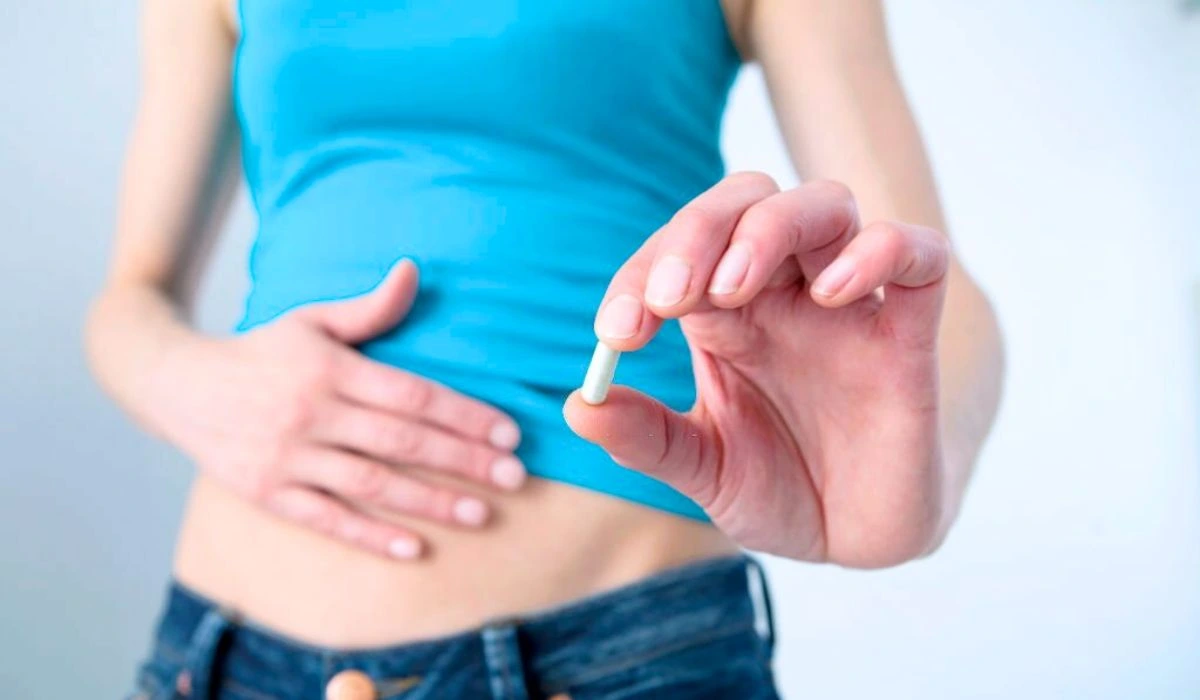Constipation, stomach distention, and gas are all common symptoms of bloating. Irritable bowel syndrome (IBS), eating a particular food, and dietary intolerance are a few of the reasons for the bloating.
Why Does Bloating Occur?

- Eating heavily and rapidly may cause your stomach to expand to make room for the extra food. Uncomfortable bloating may result from this, and bloating may also happen from eating too quickly since it might cause your stomach to keep holding air.
- When you eat, drink, or speak, you may swallow air. This may lead to gas and bloating.
- Some foods and beverages, including carbonated drinks, beans, cabbage, and dairy products, can cause bloating.
- If you have a food intolerance, some foods may be difficult for your body to digest.
- Live microorganisms, known as probiotics, are related to “good bacteria” that live in your stomach naturally. They have been shown to provide a variety of health benefits, including enhancing gut health, enhancing immunity, and lowering the risk of getting specific diseases.
According to some research, probiotics can help reduce bloating. For instance, a 2018 analysis of 15 studies discovered that probiotics could help people with IBS with their bloating. According to different studies, probiotics can help people with lactose intolerance feel less bloated and have less gas.
Also Check: Home Remedies For Bad Smelling Gas: Find The DIY Solutions
The Possible Benefits Of Probiotics For Bloating
Probiotics can help reduce bloating in a number of ways, and this can be helpful in improving digestion. They do this by digesting food and creating enzymes that promote nutrition absorption in your body. Probiotics may be beneficial in reducing the amount of gas and bloating you experience through improved digestion.
Probiotics are helpful in bringing the gut microbiome back into balance in nature. The community of billions of bacteria that live in your gut is known as the gut microbiome. Having an unbalanced gut microbiome may result in bloating as well as other digestive issues.
By raising the amount of ‘good’ bacteria and decreasing the amount of ‘bad’ bacteria, probiotics may be useful in restoring equilibrium to the gut microbiome.
Probiotics are helpful in lowering inflammation in the intestines; bloating frequently happens due to inflammation. Through the production of anti-inflammatory substances and immune system regulation, probiotics may help in the reduction of inflammation.
Which Probiotics Are Most Effective For Bloating?
There are a number of probiotic strains to choose from; the following strains have been identified as having potential for treating bloating:
- Acidophilus lactobacillus
- Lactobacillus plantarum
- Bacillus bifidobacterium
- Intestinal Bafidobacterium
It is important to remember that different probiotic strains may function better for certain individuals. It is essential to consult your doctor before taking any probiotics to reduce bloating. They can assist you in deciding on the best probiotic strains and dosages for you.
How To Use Probiotics To Reduce Bloating?
There are several different probiotic supplement products, including liquids, tablets, powders, and capsules. Probiotics are also present in some foods like yogurt, kefir, etc.
It is important to take probiotics consistently if you are taking them for bloating. The recommended probiotic dosages vary depending on the probiotic’s strain and type. It is crucial to read the product label carefully and stick to the dosage recommendation.
Most people responded positively to probiotics. However, particularly when they first begin to take probiotics, some people may have problems like gas, bloating, and diarrhea. Usually minor, the mentioned side effects tend to disappear on their own within a few days.
Probiotics should not be continued if you have any serious adverse effects; instead, stop using them and consult your physician.
Additional Remedies For Bloating
You can do a variety of different things apart from taking probiotics to reduce bloating, such as:
- Eat slowly and completely chew your food.
- Avoid consuming too much food or liquid at once.
- Avoid foods that cause bloating.
- Exercise regularly.
- Manage stress
By eating healthy and on time, moving your body frequently, and taking proper rest, you can avoid bloating and other digestive issues.
It is very important to discuss your bloating with your doctor if it has been happening for a long period of time. They can assist you in developing treatment plans and in identifying the fundamental reason for your bloating.
Read More: Remedies For Burning Stomach: Find Ways For Natural Soothing